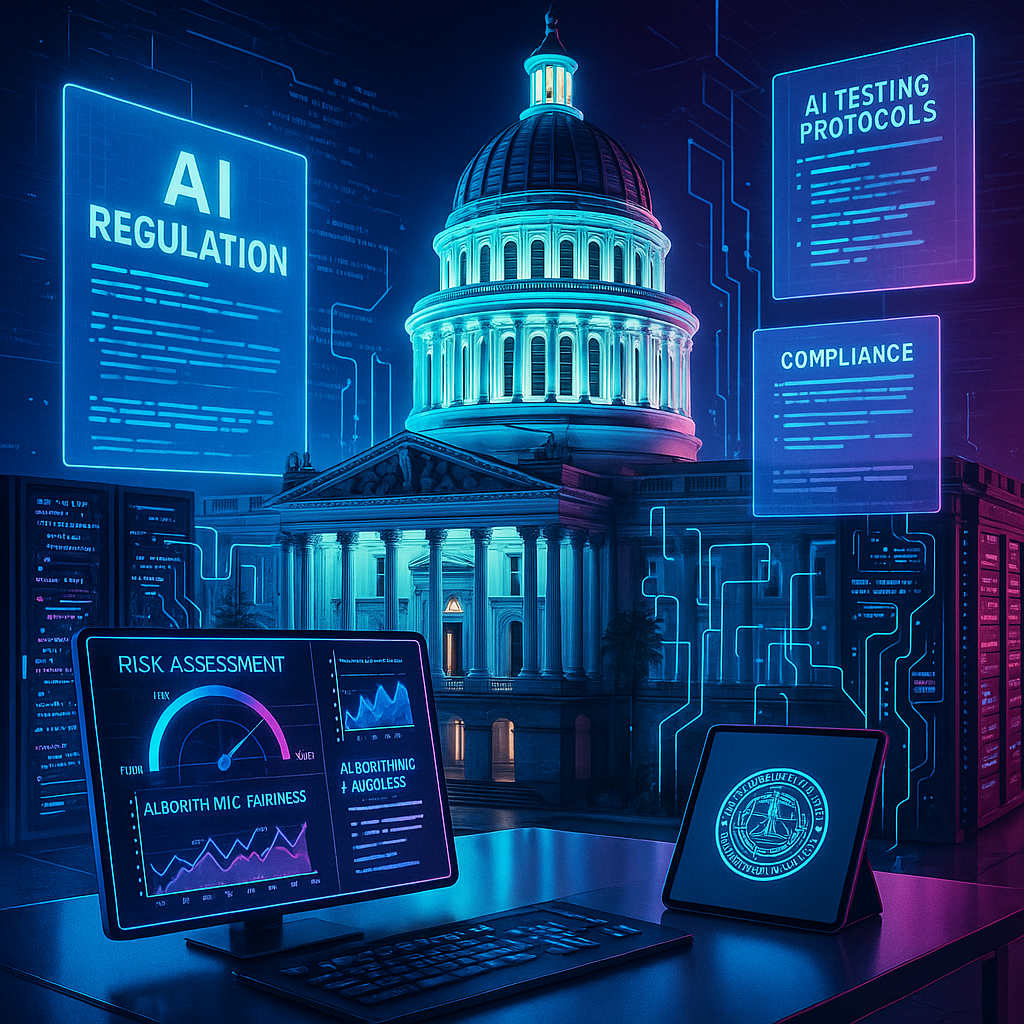Key Takeaways
- California adopts comprehensive AI safety law: New legislation sets rigorous standards for AI development and deployment across the state.
- Focus on transparency and accountability: AI companies are now required to disclose risk assessments, testing protocols, and potential societal impacts to regulators and the public.
- Ethical standards prioritized: The law enforces rules for algorithmic fairness, transparency in AI decision-making, and protection against automated discrimination.
- Potential model for national policy: California’s approach is viewed as a leading example for federal lawmakers and other states considering AI regulation.
- Transition period for compliance: Companies must comply by January 2026, with additional regulatory guidance and oversight anticipated before enforcement.
Introduction
California has enacted the nation’s most comprehensive AI safety law, signed on Thursday in Sacramento. This landmark legislation sets new standards for transparency, fairness, and accountability in artificial intelligence. By requiring companies to disclose risks, testing processes, and algorithmic impacts, California places itself at the forefront of navigating the complex relationship between human intent and machine autonomy. The law is expected to shape national and global AI debates.
Key Provisions of the Law
The AI Safety Act introduces mandatory risk assessments and transparency requirements for companies developing or deploying advanced artificial intelligence systems. Companies must now document and disclose their testing protocols, decision-making frameworks, and the potential societal impacts of their AI tools prior to public release.
A new oversight framework compels companies to demonstrate that their AI systems meet rigorous safety standards and do not perpetuate harmful biases. State Senator Anna Rodriguez, the bill’s sponsor, stated that the intent is not to stifle innovation but to ensure AI aligns with democratic values and human rights.
The technical aspects of the law require companies to detail training data sources and model architectures, and to undertake regular audits of AI outputs. Documentation of risk mitigation strategies and incident response protocols is also mandatory.
Stay Sharp. Stay Ahead.
Join our Telegram Channel for exclusive content, real insights,
engage with us and other members and get access to
insider updates, early news and top insights.
 Join the Channel
Join the Channel
Industry Response and Implementation Timeline
Major technology firms have largely welcomed the legislation, with several leaders voicing support for its clarity and balanced approach. Maria Chen, Chief Ethics Officer at TechCorp Solutions, said that these guidelines provide clear guardrails necessary for responsible AI development.
In contrast, smaller startups and AI labs have voiced concerns regarding compliance costs and practical challenges in implementation. The Independent AI Developers Association warned that excessive regulatory demands could hinder innovation or drive it out of state.
The law is set to roll out on a graduated schedule, beginning in July 2024. Companies have 18 months to establish compliance systems, with full enforcement commencing in January 2026.
Philosophical and Ethical Implications
The legislation signals a move away from viewing AI governance solely as a technical matter. Instead, it acknowledges significant social and philosophical considerations. Dr. James Morrison, director of the Technology Ethics Institute, explained that these measures go beyond regulating algorithms to reshaping the societal relationship with artificial intelligence.
Explicit requirements push companies to examine issues such as consciousness, autonomy, and human dignity within the AI development process. This shift encourages engagement with foundational questions about intelligence and the boundaries separating human and machine decision-making.
Some critics caution that introducing philosophical criteria into regulation could complicate compliance. Supporters counter that such questions are integral to any meaningful discussion of AI governance.
National and Global Impact
California’s initiative is already impacting discussions at the national and international levels. Federal lawmakers have begun drafting similar legislation, often citing California’s framework as a model for future standards.
Global interest is strong, with European Union officials noting parallels between California’s approach and the EU’s own AI Act. These similarities suggest the possibility of aligning regulatory standards in the future.
State officials are sharing their experience and strategies with leaders in other jurisdictions. Dr. Sarah Chen, visiting scholar at the Global AI Policy Institute, noted that developments in California are likely to influence the trajectory of AI governance around the world.
Conclusion
By combining technical rigor with ethical inquiry, California’s AI Safety Act establishes a precedent for how humans may coexist with artificial intelligence. As policymakers, industry leaders, and ethicists worldwide examine the law’s impact, the interplay between innovation and accountability will continue to unfold well beyond California. What to watch: Companies must establish compliance frameworks by July 2024, with enforcement beginning in January 2026.





Leave a Reply